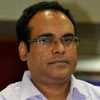Tagore was fortunate. No culture minister advised him to stop writing
Close to a century ago, Rabindranath Tagore returned the title of knighthood to protest against the Jalianwala Bagh massacre. He wrote to Lord Chelmsford, the viceroy of India: “The time has come when badges of honour make our shame glaring in the incongruous context of humiliation, and I for my part wish to stand, shorn of all special distinctions, by the side of those of my countrymen, who, for their so-called insignificance, are liable to suffer degradation not fit for human beings.”
Tagore might have been the first but was certainly not the last writer to express his dissent through this method. During the emergency, Hindi novelist Phanishwar Nath ‘Renu’ returned his Padma Shri award to oppose the attack on civil rights, while journalist-novelist Khushwant Singh returned his Padma Bhushan award in 1984 protesting the Operation Blue Star.
In recent weeks, as some countrymen suffered much more than “degradation not fit for human beings”, one after another writer has taken a cue from the Gurudev, and lodged protest against the silence of the state and of Sahitya Akademi (whose building is called Rabindra Bhavan whose foyer has a statue of the Gurudev).
It first made news when 88-year-old Nayantara Sehgal, Jawaharlal Nehru’s niece, returned her Sahitya Akademi award, after the killing of a man for rumoured beef eating in Dadri on September 28 – a protest against suddenly rising intolerance. But it started with the well known Hindi writer, Uday Prakash, who had announced to return his Akademi award on September 4 to protest the killing of renowned Kannada writer and rationalist Dr MM Kalburgi. Kalburgi was also a recipient of the Akademi award, and the organisation should have spoke up but did not. After Sehgal, there have been a long list of writers returning the awards, of the central as well as state-level akademis.
The Akademi finally acknowledged their protest, and in a meeting on October 23 condemned the killing of Kalburgi and others, and urged the authors to take back their awards.
But the government is yet to respond to the protests in a mature way. Tagore was fortunate, but his successors have been ridiculed, and motives have been imputed to their move. Arun Jaitley, information and broadcasting minister, has termed the protest ‘manufactured’. Communications and information technology minister Ravi Shankar Prasad called it a Congress-sponsored rebellion. Culture minister Mahesh Sharma beat them both in coming up with the most insensitive remark, advising writers to stop writing if they feel so hurt.
“Shameful, awful”
Well known Hindi novelist Kashinath Singh, seen as the voice of prime minister Narendra Modi’s constituency Varanasi, is not happy with the reactions from the government. “Writers can never be slaves of one party or another. No one can manufacture their protest. We are not such mindless people that anyone can drive us according to their wish. We have always worked according to our conscience. Returning awards is not the result of any collective decision. Every writer who has returned the award has decided to do so himself or herself,” Singh told Governance Now. Initially, Singh was not in favour of returning his award but later he joined the growing movement.
Hindi poet Manglesh Dabral, adds, “The crisis is real, and not manufactured as Jaitley has falsely alleged. Writers returning the award were not patronised by the Congress or any other party. Most of the writers have always been known for their anti-Congress positions.
Neither the lynching of an innocent over rumours of beef eating is manufactured nor the murder of Kalburgi. The culture minister’s suggestion to stop writing is shameful. How can any writer remain silent against the forces working on the agenda of communalising the society?” Dabral, known for his leftist leanings, has returned the Akademi award he had received in 2001.
Describing Jaitley’s statement as “awful” and “stunning”, Hindi novelist Uday Prakash says, “Truth is, the communal and personalised violence along with the politics of hatred and distrust amongst people in general and individuals in particular having a large variance of caste, creed, ideology, religion and their separate cultural tenets, traditions and practices, is ‘manufactured’ by the vested interests of communal and power centric politics. …We’re witnessing a digitalising of India’s post-human politics, which is actually manufacturing a huge theatre of panic and vehemence.”
Beyond award wapsi
The literati’s protest is not limited to returning awards. Authors across the country have united against the arrogance of the government. Some 160 writers and intellectuals from West Bengal have written to president Pranab Mukherjee requesting his intervention. “We are horrified at the callous lack of support and apathy of the state in finding and bringing the culprits to justice. The stifling atmosphere of fear and uncertainty is fatal to the freedom of expression that is at the heart of our shared lives, and it is for the restoration of this common fabric that we urge you to intervene,” they have written in the letter. The signatories include poets Sankha Ghosh, Nirendranath Chakraborty, economists Ashok Mitra and Amiya Bagchi, theatre and film actor Kaushik Sen, authors Nabaneeta Deb Sen, Bani Basu, Shirshendu Mukherjee, Samaresh Majumdar, theatre maestro Rudraprasad Sengupta and painter Wasim Kapoor.
This protest has an international resonance also. Writers from 150 countries have expressed solidarity with Indian authors and have asked the BJP government to provide better protection and safeguard free speech. PEN International, the world’s leading association of writers working to promote literature and defend freedom of expression around the world, in a statement called upon the Indian government to identify and arrest the killers of Kalburgi, Narendra Dabholkar and Govind Pansare. The New York Times, meanwhile, reported on the movement on October 18, with a front-page article titled ‘Indian writers spurn awards as violence flares”.
feedback@governancenow.com
(The column appears in the November 1-15, 2015 issue)
